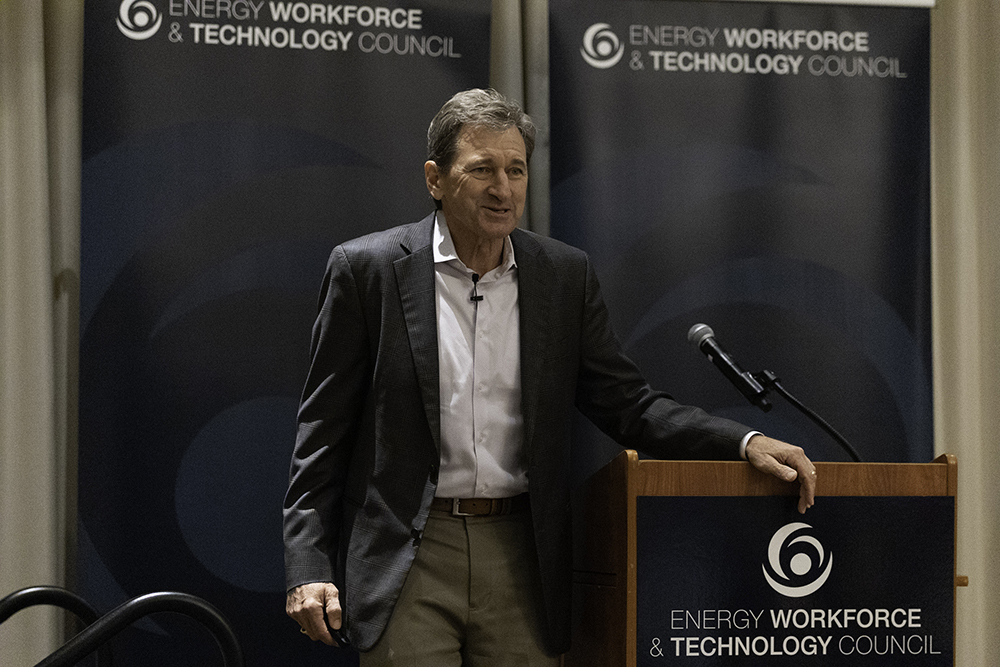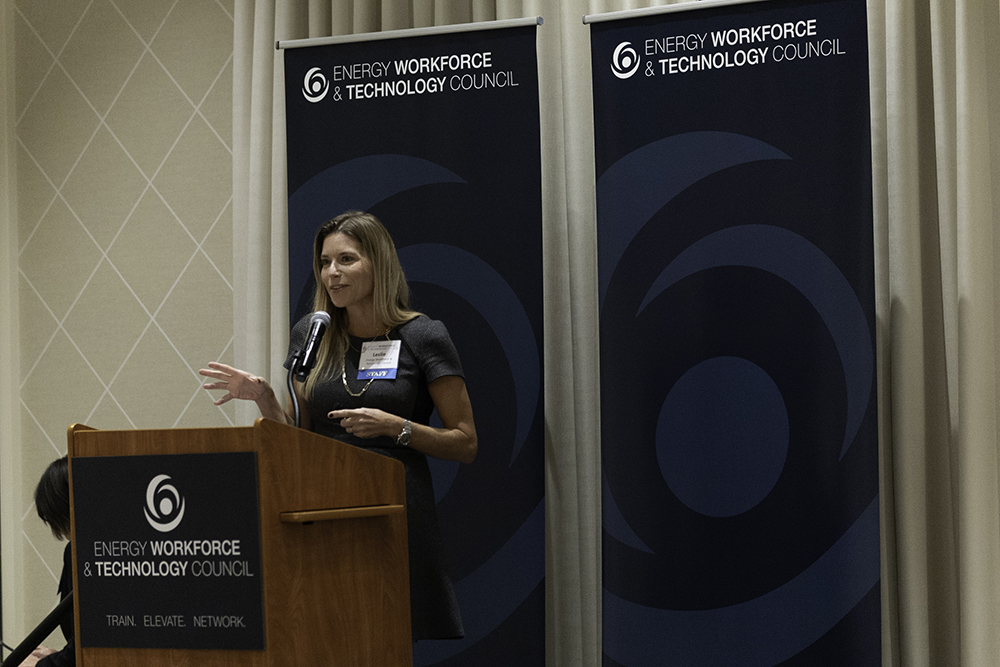
Dr. Scott Tinker, a leading geologist, educator and energy expert discussed issues with wide-reaching impacts throughout the energy industry, including global energy poverty, carbon emissions, energy transition in developing/emerging countries, renewables and making science-based progress towards a realistic low-carbon future during a Council-hosted event in Houston on October 1.
Tinker, who is Director of the Bureau of Economic Geology, Chairman of the Switch Energy Alliance and the Texas State Geologist addressed the gathering of industry leaders about his scientific perspective on the future of energy. He works to bring industry, government, academia and nongovernmental organizations together to collaborate on solving major societal challenges in energy, the environment and the economy.
“When evaluating energy, we’ve got to widen the aperture. Energy underpins everything in our lives, and it’s not simple. Simplistic approaches like clean or dirty, good or bad — these are binary choices that don’t exist. We’re being made to think they do, but they don’t exist today. We’ve got to wait and then think critically.”
Dr. Scott Tinker
Tinker said that the disparity in access to clean, affordable, and efficient energy in developing countries, comprises a global energy poverty that affects us all.
“The true energy transition is from poverty to prosperity,” Tinker said. “Without it, nothing else happens.”
Currently 75% of the world’s population accounts for less than 20% of the global energy consumption per capita. For those energy-disadvantaged countries to grow and emerge in the world economy, Tinker says the focus must turn to reliable energy to enable high-quality education.
“Population growth is tied directly to education, and education is dependent on consistent and affordable access to energy.”
As populations grow and the global economy supports development of emerging countries around the world, a global increase in energy demand from a growing middle class will outpace our current global capacity for energy production. This could hinder the world’s ability to meet environmental and climate goals, Tinker said, because emerging energy markets in traditionally energy-poor, non-OECD countries with booming populations do not have access to cleaner-burning energy sources like nuclear or natural gas. Emerging economies like India and Pakistan rely heavily on coal power, which will have a massive impact on global CO2 emissions.
“North America and Europe have been flat for 40 years and are coming down,” Tinker said of greenhouse gas emissions. “Asia and the rest of the world are just getting started.”
Advances in technology and investments in natural gas infrastructure have ushered the U.S. into an ongoing energy transition. Since the shale boom in 2005, natural gas has emerged as an efficient, affordable and less carbon-intensive energy source than coal.
“Those involved in hydraulic fracking made it cheap to replace coal and renewable portfolio standards in a big way in the United States,” Tinker said. He cautioned that while a natural gas-powered economy has many virtues, the industry must take elimination of flaring and venting seriously.
“Recovery to date of less than five percent of technically recoverable natural gas leaves a tremendous remaining resource,” he said.
As part of his quest to dispel “factually correct but factually incomplete” data projections, Tinker led the audience through an overview of what it would take to replace oil and gas with renewable energy sources like wind and solar if current industry target dates remain in effect.
“Equitable and sustainable energy transition requires non-partisan energy education and critical thinking. Current federal anti-oil and gas policies are going to negatively impact shale production, global emissions, national security, and oil and gas prices because somebody else will keep producing with less restrictive policies.”
He also highlighted common misconceptions about the renewable energy sector and its role in future energy markets.
“The sun and the wind are renewable, but the wind turbines, solar panels, and batteries aren’t,” Tinker said. “Let’s be completely factual and factually complete: There’s no truly renewable energy. It all comes from the earth. We make it and dump it back into the earth or into the atmosphere.”
Tinker closed with his key focus area for a sustainable and achievable low-carbon future: “Let’s quit focusing on eliminating fuels and start to focus on decreasing emissions, which is the climate problem.”
Phillip DeBauche, Director, Environmental and Technical, writes about the Council’s environmental efforts. Click here to subscribe to the Council’s newsletter, which highlights industry practices, workforce development, Council activities and more.





